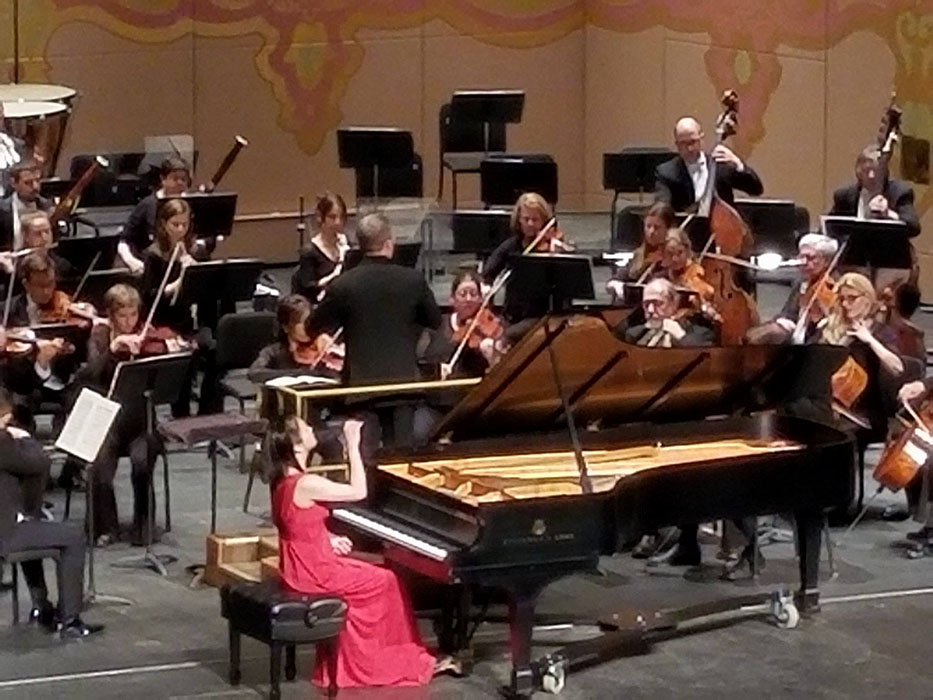It has only been a scant two years since the Knoxville Symphony Orchestra last performed Mozart’s Piano Concerto No. 20 in D minor, K. 466, but even that seems to be too long for fans of the concerto. On that occasion in February of 2016, the KSO was in the midst of its search for a new music director and the season was given over to the guest conductor candidates. Candidate Eckhart Preu had made the selection of the Mozart concerto with pianist Alon Goldstein, along with works by Richard Strauss, Jennifer Higdon, and Prokofiev.
With Maestro Aram Demirjian away this week conducting the New England Conservatory Symphony in Boston, the Knoxville Symphony Orchestra found itself once again with the Mozart concerto on the bill—and a guest conductor on the podium. This week’s Masterworks conducting duties fell to guest maestro Edwin Outwater in a program that also included Schumann’s Symphony No. 2 and contemporary composer Missy Mazzoli’s Violent, Violent Sea.
Although the Mozart concerto is in the potentially somber key of D minor, the composer imbued the work with a sense of stormy hopefulness and quiet elation rather than tragedy, making it a perfect work for a warm spring evening in which hope springs eternal. Clearly, pianist Fei-Fei Dong felt the same way. Her facial expression moved between artistic ecstasy and clear determination, with the same qualities emerging from her playing. This was a beautifully wrought performance, full of nuance and sweet, chalky tones, supported by splendidly assured passagework. In the second Romance movement—a movement that ranks with the most lyrically subtle and charming ever written—Dong became one with that ineffable quality that is Mozart’s simple complexity.
One couldn’t help admiring the seemingly transparent connection between pianist and conductor despite the fact that there was little or no eye contact, with the music itself syncing Dong with Outwater and the orchestra. If one were to find a fault with the performance, it would be one of overall historical dynamics—dynamics that felt more Romantic period than Classical, more 1835 than 1785. But, is there anything wrong with that in the grand scheme of things? I think not.
Dong rewarded the audience with an encore piece that kept the audience standing, a ripping performance of Arcadi Volodos’ arrangement of Mozart’s Turkish March.
Outwater opened the evening with Missy Mizzoli’s Violent, Violent Sea. That title is perhaps hyperbole, Outwater admitting in his preface remarks that the piece is not really that violent. I found the work curiously satisfying despite its complete lack of a musical narrative, mostly due to its low-end solidity that is showered with percussion and woodwind flourishes. Rather than impressionistic, it was an expressionistic sequence of sonic images, perhaps the musical equivalent of a roomful of Rothko paintings. The orchestra handled the work’s technical complexity with apparent mastery.
With Robert Schumann’s Symphony No. 2 concluding the evening, Outwater’s sensibility for Romantic period dynamics and lyricism was perfectly at home, albeit with a minimum of outward drama. This was a performance of carefully sculpted moments, skillfully rendered, without ostentation or showiness. As a result, the finale comes as something of a surprise—a pleasant one at that.








